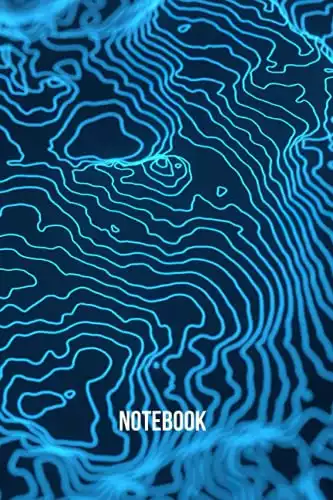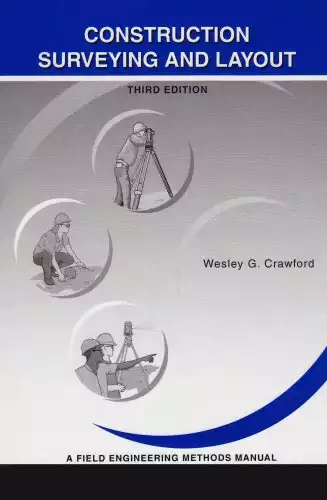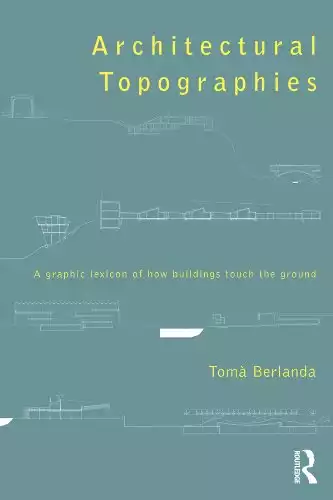We may receive compensation when you click on links to products from our partners.
Topography involves charting the surface of the land in a three-dimensional rendition. Three-dimensional models may be created in meticulous detail on the computer using specialized software or in more broad features on paper maps. Developing the ability to create and decipher these renditions is an important skill to have in many careers, whether you are studying the topography of the Earth, the surface of an asteroid in space, or the structure of the human brain.
This notebook is ideal for all Topography lovers. It is composed of 100 pages allowing you to take notes, homework, write down your thoughts
Skills Required for Mastering Topography as a Career
- Technical Proficiency: Topography demands expertise in using specialized tools like theodolites, GPS units, and mapping software essential for accurate land measurement.
- Analytical Thinking: A topographer must interpret complex geographical data, requiring strong analytical skills to make precise calculations and decisions.
- Attention to Detail: Precise measurements are crucial in topography; even minor errors can lead to significant issues, hence meticulousness is key.
- Mathematical Skills: Proficiency in mathematics, especially geometry and trigonometry, is necessary for calculating elevations, distances, and angles.
- Geographic Information Systems (GIS) Knowledge: Understanding GIS software is vital for creating and analyzing spatial data in topography.
- Physical Stamina: Fieldwork in various terrains requires good physical condition to carry out extensive surveys and handle the equipment.
- Problem-Solving Abilities: Topographers face unexpected challenges in the field and must devise solutions on the fly.
- Communication Skills: Clear communication is essential when working with a
team and reporting findings to clients or other professionals. - Project Management: Managing surveys and ensuring that projects adhere to timelines and objectives require effective organizational skills.
- Continuous Learning: The field is ever-changing with new technology and methods, so a commitment to ongoing education is important.
1. Land Surveyor
Land surveyors help determine boundaries for land plots. As part of your career as a land surveyor you will create accurate maps of the land surface to help decide where roads and buildings should go, making topography a skill that is crucial to your job.
Navigating the contours of a career in topography? Discover six paths where your skills can chart the course to success. Unveil a world where maps and technology meet the eye! #TopographyCareers #MappingYourFuture #GeospatialGuru #CareerContoursClick To Tweet2. Construction Engineer
Land and construction surveying typically feature in the job responsibilities of construction engineers, playing a critical role in designing and building infrastructure like roads, airports, and dams. A thorough understanding of topography and land features is essential; without it, even the most meticulously planned structures are at risk of failure, posing potential dangers to public safety.
3. General contractor
General contractors may appear to be managers who delegate topography tasks, but they must possess the insight to determine the appropriate specialists for each phase of a project. If they prematurely hire a construction specialist to lay a foundation on unprepared ground, it could lead to costly delays and derail the schedule.
An understanding of each site’s characteristics and the intricacies of managing topography is crucial for a general contractor to ensure that projects proceed without a hitch.
4. Cartographer
Cartographers, tasked with mapping the Earth’s surface or celestial bodies like the moon and other planets, require proficient topography skills to produce accurate representations. Their creations serve explorers, educators, and geologists, among others, in a seemingly endless queue of individuals who depend on maps in their daily activities. These professionals must ensure that each map is a reliable tool, underpinning countless decisions and endeavors.
5. Architect
Architects must conduct a comprehensive analysis of a site when designing buildings or structures. Factors such as local weather patterns, the terrain’s composition, and the natural lay of the land are critical in assessing a site’s suitability. The knowledge of topography is indispensable for architects, enabling them to design structures that are not only aesthetically pleasing but also resilient and harmonious with their environment. It informs their planning, ensuring that the building will integrate well with its surroundings and withstand local climatic conditions.
Architectural Topographies is a critical dictionary for architects and landscape architects in which the graphic lexicon can be read from the beginning, the ground, to a conclusion, the specific case studies.
6. Neuroradiologist
Topography skills can be useful in careers not directly to the use of land maps. Neuroradiologists study brain topography to make a diagnosis of what is wrong with a patient and how to proceed with treatment. Brain topography takes mapping to a new level and moves earth science into biological applications.
The ability to create and interpret maps is a versatile skill applicable across various disciplines. From earth sciences and astronomy to construction and even the medical field, expertise in mapping and topography is highly valuable. This skill enhances one’s capability to analyze spatial information, making it an asset for professionals aiming to excel in their respective careers.
According to bls.gov, the employment of cartographers and photogrammetrists is projected to grow 19 percent from 2016 to 2026, much faster than the average for all occupations. Job prospects are likely to be excellent due to the increasing use of maps in government planning.
It’s no secret that job interviews are nerve-wracking, especially if you feel the position is a much-needed stepping stone into a fulfilling product management career. Take a look at CareerAlley's interview resources to improve your interview skills and nail your next interview.







